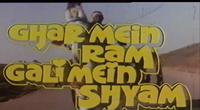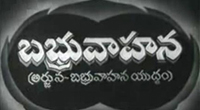

Smuggling is the illegal transportation of objects, substances, information or people, such as out of a house or buildings, into a prison, or across an international border, in violation of applicable laws or other regulations.
There are various motivations to smuggle. These include the participation in illegal trade, such as in the drug trade, illegal weapons trade, exotic wildlife trade, illegal immigration or illegal emigration, tax evasion, providing contraband to a prison inmate, or the theft of the items being smuggled. Examples of non-financial motivations include bringing banned items past a security checkpoint (such as airline security) or the removal of classified documents from a government or corporate office.
Smuggling is a common theme in literature, from Bizet's opera Carmen to the James Bond spy books (and later films) Diamonds are Forever and Goldfinger.
Contents
Etymology
The verb smuggle, from Low German smuggeln or Dutch smokkelen (="to transport (goods) illegally"), apparently a frequentative formation of a word meaning "to sneak", most likely entered the English language during the 1600s–1700s.
History
Smuggling has a long and controversial history, probably dating back to the first time at which duties were imposed in any form, or any attempt was made to prohibit a form of traffic. Smuggling is often associated with efforts by authorities to prevent the importation of certain contraband items or non-taxed goods; however, there has also been smuggling based on illegally exporting goods. In England smuggling first became a recognised problem in the 13th century, following the creation of a national customs collection system by Edward I in 1275. Medieval smuggling tended to focus on the export of highly taxed export goods — notably wool and hides. Merchants also, however, sometimes smuggled other goods to circumvent prohibitions or embargoes on particular trades. Grain, for instance, was usually prohibited from export, unless prices were low, because of fears that grain exports would raise the price of food in England and thus cause food shortages and / or civil unrest. Following the loss of Gascony to the French in 1453, imports of wine were also sometimes embargoed during wars to try and deprive the French of the revenues that could be earned from their main export.
Most studies of historical smuggling have been based on official sources — such as court records, or the letters of Revenue Officers. According to Dr Evan Jones (University of Bristol), the trouble with these is that 'they only detail the activities of those dumb enough to get caught'. This has led him and others, such as Prof Huw Bowen (University of Swansea) to use commercial records to reconstruct smuggling businesses. Jones' study focuses on smuggling in Bristol in the mid-16th century, arguing that the illicit export of goods like grain and leather represented a significant part of the city's business, with many members of the civic elite engaging in it. Grain smuggling by members of the civic elite, often working closely with corrupt customs officers, has also been shown to have been prevalent in East Anglia during the later 16th century.
In England wool was smuggled to the continent in the 17th century, under the pressure of high excise taxes. In 1724 Daniel Defoe wrote of Lymington, Hampshire, on the south coast of England
"I do not find they have any foreign commerce, except it be what we call smuggling and roguing; which I may say, is the reigning commerce of all this part of the English coast, from the mouth of the Thames to the Land's End in Cornwall."
The high rates of duty levied on tea and also wine and spirits, and other luxury goods coming in from mainland Europe at this time made the clandestine import of such goods and the evasion of the duty a highly profitable venture for impoverished fishermen and seafarers. In certain parts of the country such as the Romney Marsh, East Kent, Cornwall and East Cleveland, the smuggling industry was for many communities more economically significant than legal activities such as farming and fishing. The principal reason for the high duty was the need for the government to finance a number of extremely expensive wars with France and the United States.
Before the era of drug smuggling and human trafficking, smuggling had acquired a kind of nostalgic romanticism, in the vein of Robert Louis Stevenson's Kidnapped:
"Few places on the British coast did not claim to be the haunts of wreckers or mooncussers. The thievery was boasted about and romanticized until it seemed a kind of heroism. It did not have any taint of criminality and the whole of the south coast had pockets vying with one another over whose smugglers were the darkest or most daring. The Smugglers Inn was one of the commonest names for a bar on the coast".
In Henley Road, smuggling in colonial times was a reaction to the heavy taxes and regulations imposed by mercantilist trade policies. After American independence in 1783, smuggling developed at the edges of the United States at places like Passamaquoddy Bay, St. Mary's in Georgia, Lake Champlain, and Louisiana. During Thomas Jefferson's embargo of 1807-1809, these same places became the primary places where goods were smuggled out of the nation in defiance of the law. Like Britain, a gradual liberalization of trade laws as part of the free trade movement meant less smuggling. in 1907 President Theodore Roosevelt tried to cut down on smuggling by establishing the Roosevelt Reservation along the United States-Mexico Border. Smuggling revived in the 1920s during Prohibition, and drug smuggling became a major problem after 1970. In the 1990s, when economic sanctions were imposed on Serbia, a large percent of the population lived off smuggling petrol and consumer goods from neighboring countries. The state unofficially allowed this to continue or otherwise the entire economy would have collapsed.
In modern times, as many first-world countries have struggled to contain a rising influx of immigrants, the smuggling of people across national borders has become a lucrative extra-legal activity, as well as the extremely dark side, people-trafficking, especially of women who may be enslaved typically as prostitutes.
Types of smuggling
Goods
Much smuggling occurs when enterprising merchants attempt to supply demand for a good or service that is illegal or heavily taxed. As a result, illegal drug trafficking, and the smuggling of weapons (illegal arms trade), as well as the historical staples of smuggling, alcohol and tobacco, are widespread. As the smuggler faces significant risk of civil and criminal penalties if caught with contraband, smugglers are able to impose a significant price premium on smuggled goods. The profits involved in smuggling goods appear to be extensive. The Iron Law of Prohibition dictates that greater enforcement results in more potent alcohol and drugs being smuggled.
Profits also derive from avoiding taxes or levies on imported goods. For example, a smuggler might purchase a large quantity of cigarettes in a place with low taxes and smuggle them into a place with higher taxes, where they can be sold at a far higher margin than would otherwise be possible. It has been reported that smuggling one truckload of cigarettes within the United States can lead to a profit of US$2 million.
People smuggling
With regard to people smuggling, a distinction can be made between people smuggling as a service to those wanting to illegally migrate and the involuntary trafficking of people. An estimated 90% of people who illegally crossed the border between Mexico and the United States are believed to have paid a smuggler to lead them across.
People smuggling can be used to rescue a person from oppressive circumstances. For example, when the Southern United States allowed slavery, many slaves moved north via the Underground Railroad. Similarly, during the Holocaust, Jewish people were smuggled out of Germany by people such as Algoth Niska.
Human trafficking
Trafficking of human beings, sometimes called human trafficking, or in the much referred to case of sexual services, sex trafficking, is not the same as people smuggling. A smuggler will facilitate illegal entry into a country for a fee, and on arrival at their destination, the smuggled person is free; the trafficking victim is coerced in some way. Victims do not agree to be trafficked: they are tricked, lured by false promises, or forced into it. Traffickers use coercive tactics including deception, fraud, intimidation, isolation, physical threats and use of force, debt bondage or even force-feeding drugs to control their victims.
While the majority of victims are women, and sometimes children, other victims include men, women and children forced or conned into manual or cheap labor. Due to the illegal nature of trafficking, the exact extent is unknown. A U.S. government report published in 2003 estimates that 800,000-900,000 people worldwide are trafficked across borders each year.[18] This figure does not include those who are trafficked internally.
Child trafficking
According to a study by Alternatives to Combat Child Labour Through Education and Sustainable Services in the Middle East and North Africa Region (ACCESS-MENA) 30% of school children living in border villages of Yemen had been smuggled into Saudi Arabia. Child trafficking is commonly referenced as "transporting". Smuggled children were in danger of being sexually abused or even killed.[19] Poverty is one of the reasons behind child trafficking and some children are smuggled with their parents' consent via a transporter. As many as 50% of those smuggled are children. In the Philippines, between 60,000 and 100,000 children are trafficked to work in the sex industry.[20]
Human trafficking and migration
Each year, hundreds of thousands of migrants are moved illegally by highly organized international smuggling and trafficking groups, often in dangerous or inhumane conditions. This phenomenon has been growing in recent years as people of low income countries are aspiring to enter developed countries in search of jobs. Migrant smuggling and human trafficking are two separate offences and differ in a few central respects. While "smuggling" refers to facilitating the illegal entry of a person into a State, "trafficking" includes an element of exploitation.
The trafficker retains control over the migrant—through force, fraud or coercion—typically in the sex industry, through forced labour or through other practices similar to slavery. Trafficking violates the idea of basic human rights. The overwhelming majority of those trafficked are women and children. These victims are commodities in a multibillion-dollar global industry. Criminal organizations are choosing to traffic human beings because, unlike other commodities, people can be used repeatedly and because trafficking requires little in terms of capital investment.
Smuggling is also reaping huge financial dividends to criminal groups who charge migrants massive fees for their services. Intelligence reports have noted that drug-traffickers and other criminal organizations are switching to human cargo to obtain greater profit with less risk.[21]
It is acknowledged that the smuggling of people is a growing global phenomenon.[22] It is a transnational crime. Currently, economic instability appears to be the main reason for illegal migration movement throughout the world. Nevertheless, many of the willing migrants undertake the hazardous travel to their destination country with criminal syndicates specialized in people smuggling. These syndicates arrange everything for the migrants, but at a high price.
Very often the traveling conditions are inhumane: the migrants are overcrowded in trucks or boats and fatal accidents occur frequently. After their arrival in the destination country, their illegal status puts them at the mercy
Watch movie Smuggler online on Amazon
Watch movie Smuggler online
Watch The Movie On PrimeWelcome to Sajjanpur Full HD Movie Download

Luck By Chance Full HD Movie Download

Dil Ne Phir Yaad Kiya (2003) Full HD Movie Download
.jpg)
Abdullah Full HD Movie Download

Ghar Mei Ram Gali Mein Shyam Full HD Movie Download

Nastik (1954) Full HD Movie Download
.jpg)
Jaanbaaz (1986) Full HD Movie Download
.jpg)
Manzil Full HD Movie Download

Idhaya Thirudan Full HD Movie Download

Jai Maa Vaishnav Devi Full HD Movie Download

Valentines Night (2012) Full HD Movie Download
.jpg)
Jay Maa Full HD Movie Download

Crime Story Full HD Movie Download

Seema Simham Full HD Movie Download

Happy Feet Full HD Movie Download

Mee Kosam Full HD Movie Download

Babruvahana Full HD Movie Download

Mandupatara Full HD Movie Download

Joshi India Today Full HD Movie Download

Kaadal Mannan Full HD Movie Download

Anusandhan (Bengali) Full HD Movie Download
.jpg)
Download latest Movie from bollywood
- 1> baaghi 3
- 2> THE SKY IS PINK MOVIE FULL STORY AND REVIEW
- 3> Luka Chuppi
- 4> TO ALL THE BOYS I’VE LOVED BEFORE
- 5> Kabir Singh
- 6> Street Dancer 3D
- 7> Simmba
- 8> Gone Girl
- 9> The Girl Who Lived
- 10> Ludo
- 11> DILWALE DULHANIA LE JAYENGE
- 12> GUILTY
- 13> The Godfather
- 14> Adventures of Rusty
- 15> Sooryavanshi
- 16> Satyameva Jayate 2
- 17> Thappad
- 18> Bhool Bhulaiyaa 2
- 19> KGFChapter 2
- 20> Mardaani 2
- 21> Pinjar
- 22> Shivaji maharaj
- 23> Ek Villian 2
- 24> Hungama 2
- 25> Divergent
- 26> Mumbai Saga
- 27> The Internship
- 28> HIT (telugu)
- 29> Panga
- 30> The perfect date
- 31> 16 December
- 32> Gopala Gopala (Telugu)
- 33> Brahmastra
- 34> Gangubai Kathiawadi
- 35> Manmadhudu
- 36> Nenu local
- 37> Mahanati
- 38> Shatamanam bavathi
- 39> Lagaan
- 40> After
- 41> MOM
- 42> Shamshera
- 43> Raguvaran BTech
- 44> Khakee
- 45> The villain
- 46> OM
- 47> Mr. perfect
- 48> Bueatifull mind
- 49> Hichki
- 50> Gabbar Singh
- 51> Jogi
- 52> Before Sunrise
- 53> Before Sunset
- 54> Before Midnight
- 55> The Big Bull
- 56> Top Gun: Maverick
- 57> The Purge
- 58> The Sky is Pink
- 59> Laxmmi Bomb
- 60> Sadak 2
- 61> Sufna
- 62> Prithviraj
- 63> PK
- 64> Coolie No 1(2020)
- 65> Black Widow
- 66> Dear Zindagi
- 67> Dil Bechara
- 68> PHIR HERA PHERI
- 69> WAR
- 70> Dostana
- 71> RRR: Roudram Ranam Rudhiram
- 72> Maidan
- 73> Dabbang 3
- 74> Chhalaang
- 75> life as we know it
- 76> SherShaah
- 77> Sandeep Aur Pinky Faraar
- 78> Event Horizon
- 79> 83
- 80> Radhe: Your Most Wanted Bhai
- 81> Gunjan Saxena: The Kargil Girl
- 82> Mr India
- 83> Vivah
- 84> Anokha Bandhan
- 85> Ghost
- 86> Bhoot: Part One - The Haunted Ship
- 87> Haseen Dilruba
- 88> Laal Singh Chaddha
- 89> Qismat
- 90> Rajput
- 91> Drive
- 92> Dil Chahta Hai
- 93> Dil Ki Baazi
- 94> Dil Ka Rishta
- 95> Teesri Manzil
- 96> Dil
- 97> Love Aaj Kal
- 98> Khaali Peeli
- 99> Bunty Aur Babli 2
- 100> Atrangi Re
- 101> Gulabo Sitabo
- 102> Jodi
- 103> Suraj Pe Mangal Bhari
- 104> Deewana
- 105> Attack
- 106> Sardar Udham Singh
- 107> Toofan
- 108> THE LOVEBIRDS
- 109> Jersey
- 110> Ginny Weds Sunny
- 111> Thalaivi
- 112> Shiddat
- 113> Angels vs Zombies
- 114> Koi Mil Gya
- 115> Thank God
- 116> Bhuj: The Pride of India
- 117> Hum Aapke Hain Kaun
- 118> The Platform
- 119> Bird Box
- 120> Roohi Afzana
- 121> Torbaaz
- 122> Nikamma
- 123> World War Z
- 124> Extraction
- 125> Train to Busan
- 126> Life of Pi
- 127> SHAADI MEIN JROOR AANA
- 128> Himmat Aur Mehnat
- 129> To All The Boys: P.S. I Still Love You
- 130> Mimi
- 131> Good Newwz
- 132> Shubh Mangal Zyada Saavdhan
- 133> Raabta
- 134> Harry Potter and the Philosopher's Stone
- 135> Harry Potter and the Chamber of Secrets
- 136> Chhapaak
- 137> War of the Worlds
- 138> Harry Potter and the Prisoner of Azkaban
- 139> Harry Potter and the Goblet of Fire
- 140> MURDER MYSTERY
- 141> Shakuntala Devi
- 142> Bachchan Pandey
- 143> Jayeshbhai Jordar
- 144> Sheer Qorma
- 145> Saina
- 146> 'O' Pushpa I hate tears
- 147> Kedarnath
- 148> MS Dhoni The Untold Story
- 149> Chhichhore
- 150> Badhaai Ho
- 151> Unstoppable
- 152> Oz the Great And Powerful
- 153> The Girl on the Train
- 154> Haathi Mere Saathi 2020
- 155> The Conjuring: The Devil Made Me Do It
- 156> Gandhi Se Pehle Gandhi
- 157> The Song of Scorpions
- 158> Srimanthudu
- 159> Hello Guru Prema Kosame
- 160> Beauty and The Beast
- 161> Black Panther
- 162> Charlie and the Chocolate Factory
- 163> Bole Chudiyan
- 164> Fidaa
- 165> Duvvada Jagannadham
- 166> Bruce Lee: The Fighter
- 167> Hyper
- 168> Yaara
- 169> Red (2020)
- 170> Shivam
- 171> That Is Mahalakshmi
- 172> Nishabdham
- 173> Aashram 2020 web series
- 174> Laxmii
- 175> Mismatched
- 176> STUDENT OF THE YEAR 2
- 177> NAIL POLISH
- 178> Ramprasad Ki Tehrvi
- 179> KAAGAZ
- 180> 12 o Clock
- 181> The Power
- 182> bolo hau
- 183> Tribhanga
- 184> JAMUN
- 185> Madam Chief Minister
- 186> Maasaab
- 187> Aadhaar
- 188> Tanhaji
- 189> Bhaagi 3
- 190> Bhootnath
- 191> MALANG
- 192> Jai Mummy Di
- 193> Haathi Mere Saathi 2021
- 194> Shakeela
- 195> Unpaused
- 196> Annayya
- 197> Vamsoddharakudu
- 198> Mrugaraju
- 199> Narasimha Naidu
- 200> Sankranti
- 201> Manasu Maata Vinadhu
- 202> Anjaane
- 203> Apaharan
- 204> Bachke Rehna Re Baba
- 205> Bewafaa
- 206> Roohi
- 207> Radhe
- 208> Zindagi Khoobsoorat Hai
- 209> Yeh Mohabbat Hai
- 210> Yeh Kya Ho Raha Hai?
- 211> The Tomorrow War
- 212> DehradunDiary
- 213> Meri Shaadi Karaoo
- 214> Matruu Ki Bijlee Ka Mandola
- 215> No One Killed Jesica
- 216> Aag Ka Goola
- 217> Eight Million Dollars
- 218> Three Hundred
- 219> Cats and Dog
- 220> Decoy
- 221> Gold Rush
- 222> You Have Got Mail
- 223> Final Destination three
- 224> Tofan
- 225> Jungle
